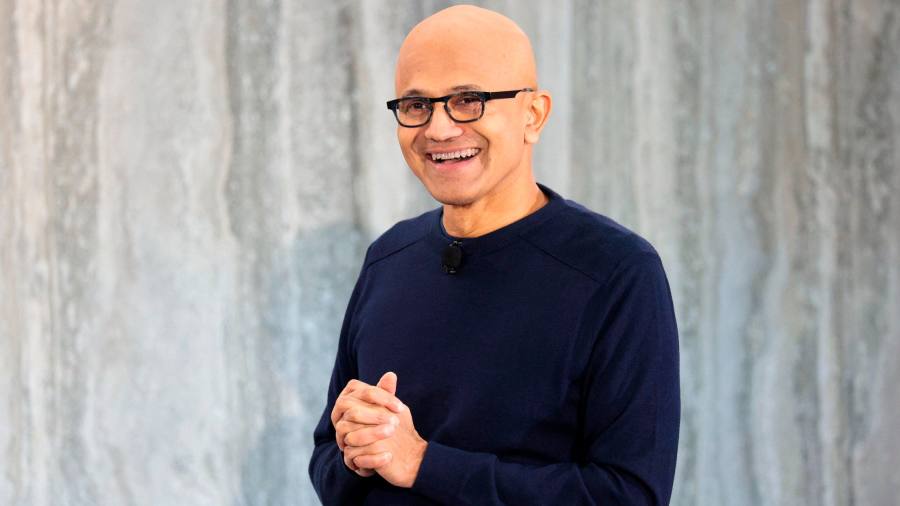Receive free Microsoft Corp updates
We’ll send you a myFT Daily Digest email rounding up the latest Microsoft Corp news every morning.
Microsoft is to charge $30 a month for generative artificial intelligence features in its widely used productivity software, slapping a bigger premium than expected on a technology that many in the industry hope will bring a powerful boost to revenues.
For customers who sign up, the new features are set to add a hefty 53-83 per cent increase to the average monthly cost of business-grade versions of the Microsoft 365 service, a suite of software formerly known as Office 365 that is used by hundreds of millions of workers.
Satya Nadella, Microsoft chief executive, defended the pricing decision as part of a generational shift in technology that would bring a new dimension to one of the software company’s core products.
“I would think of this as the third leg” of Office, he said, after applications such as Word and Excel and cloud services like Teams. Speaking in an interview with the Financial Times, he claimed the new AI features “are the same class of value”, automating routine work and increasing productivity.
The pricing news came as the US software giant used its annual partner conference to unveil products and services based on generative AI, including a business-grade version of the chatbot it added this year to its Bing search engine. The new chatbot is aimed at businesses worried their workers are secretly feeding sensitive corporate data into ChatGPT, which is run by close Microsoft ally OpenAI, despite an attempt by many employers to ban its use.
Microsoft has become the first tech company chosen by Meta to make available a commercial version of the social media company’s family of open-source large language models, known as LLaMA. Meta has licensed the technology for research use only, until now.
A commercial launch of the well-received software has been considered an important moment, bringing a new form of competition for OpenAI and Google.
Microsoft’s pricing of generative AI has been hotly anticipated in the tech world, given the wide use of the company’s productivity software. More than 382mn people used commercial versions of the Office 365 software in the latest quarter, the company said.
The price is “at the higher end of what we see for other generative AI services”, said Jason Wong, an analyst at Gartner. OpenAI charges $20 a month for the premium version of ChatGPT, while the monthly fee for a business version of Microsoft’s generative AI coding assistant, GitHub Copilot, is $19.
Evidence that the GitHub service has made coders more productive is “what’s giving us real confidence that a more ‘horizontal’ co-pilot like [Microsoft 365]” will have a big impact on “every [type of] sales, finance, HR or general knowledge work”, Nadella said.
He denied that the widespread use of the technology in business would lead to a “content explosion” that would see workers flooded with AI-generated emails and documents, potentially making them less productive. Instead, he predicted it would reduce the number of internal emails produced, as workers seek direct answers from their AI-powered software rather than bombard colleagues with questions.
“Every time you get a spreadsheet you get essentially a junior analyst with it you can ask questions,” Nadella said. “It’s like having an analyst on demand.”
However, the industry’s race to cash in on generative AI comes at a time when economic uncertainty has led many customers to cap their tech spending, and before companies like Microsoft have been able to collect data proving that AI-enhanced software makes workers more productive.
The new features, which Microsoft calls Copilot, will be “a challenge for enterprise buyers”, said Wong. “They need to find [the] budget for this add-on product. And then they need to justify the extra charge.”
The high cost was likely to contribute to a “slow” rollout, he added, with use limited initially to workers who “generate a lot of content — sales, marketing, customer service”, as well as those who have “a lot of need to communicate and collaborate”.
Companies using enterprise-grade versions of Microsoft 365 currently pay $36 a month for each user of the E3 version and $57 a month for the E5 version. The extra $30 a month will apply when the Copilot feature, which is currently in trials with customers, becomes generally available, the company said.
Additional reporting by Hannah Murphy
Read the full article here




